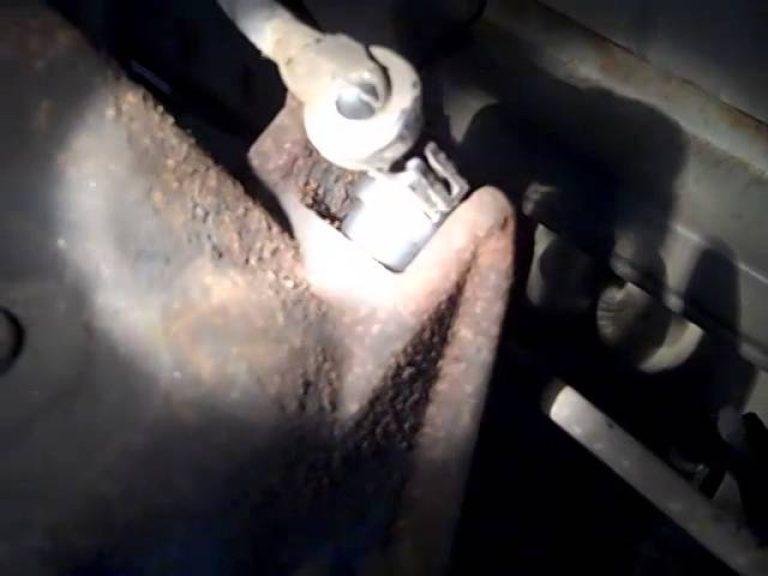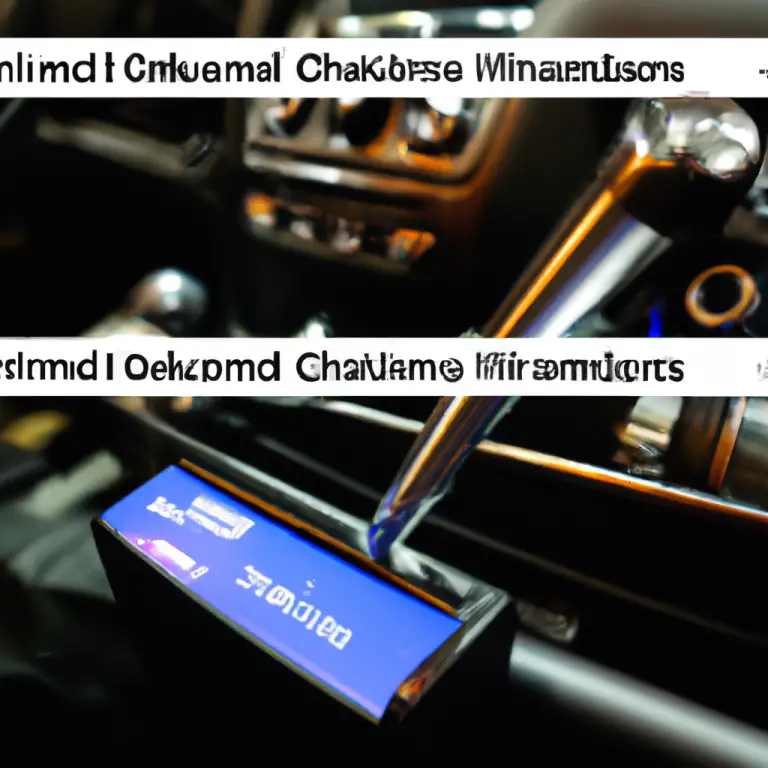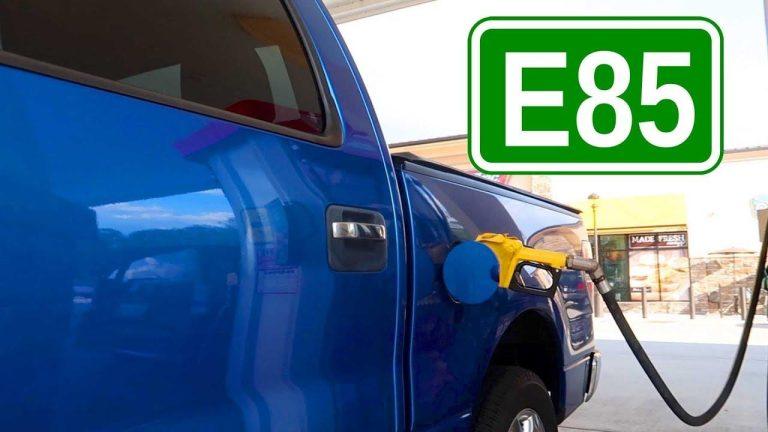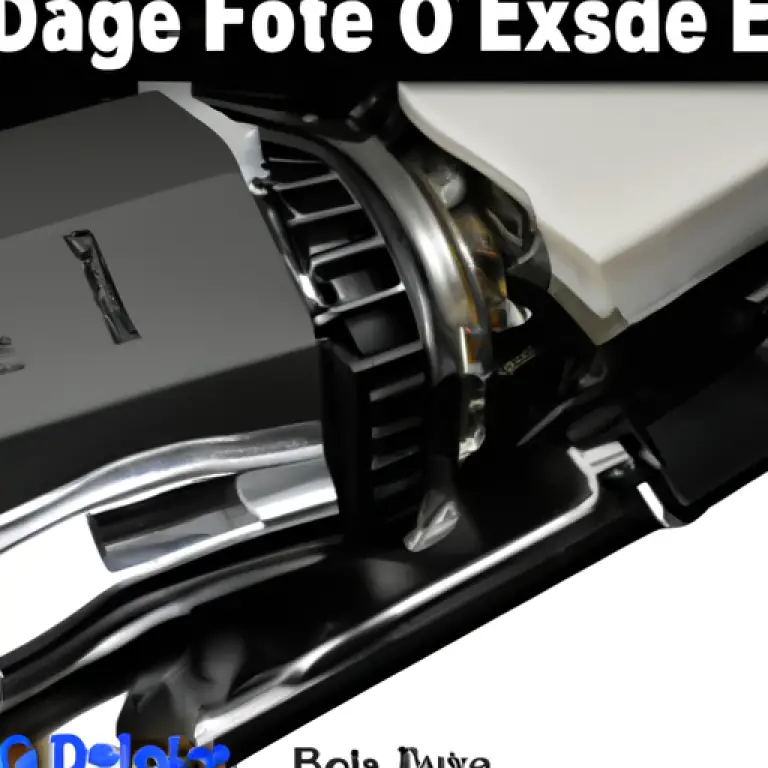2005 Ford F150 5.4 Engine
Last Updated on by David Jon
In this article, we immerse ourselves in the complexities of the 2005 Ford F150 5.4 engine, offering an in-depth exploration filled with repair insights. It’s an invaluable resource for Ford owners, DIY enthusiasts, mechanics, and all those interested in Ford vehicle maintenance. With a balanced approach – informative yet friendly –, we hope to endow you with the knowledge to tackle any issues facing your trusty Ford.

Overview of 2005 Ford F150 5.4 Engine
The 2005 Ford F150 5.4 engine remains noteworthy for its robust performance and reliability. In this review, we will comprehensively analyze its general characteristics, technical specifications, and model variations.
General features
As Ford’s workhorse, the 5.4L V8 Triton engine underlines the 2005 F150 model. An integral part of Ford’s modular engine family, this engine is known for its durability and reliability, a statement to Ford’s innovative engineering.
Technical specifications
The Ford 5.4 Triton engine is built with 3 valves for each of its eight cylinders, coupled with a single overhead camshaft design, enhancing the engine’s flow capacity. With a sizable 5.4-liter capacity, the engine achieves a compression ratio of 9.8:1, delivering an impeccable balance between performance and efficiency.
Model variations and differences
Variations depend on the specific F150 trim level, with the FX4, Lariat, King Ranch, and XLT typically featuring the 5.4L engine. The primary differentiator about performance among these trims is largely due to their configurations rather than the engine itself.
Engine Performance
The powerful performance of the 2005 Ford F150 5.4 engine plays a significant role in the vehicle’s overall appeal.
Horsepower and torque
The 5.4 Triton engine reaches 300 horsepower at 5000 RPM, which provides ample pickup and load-towing power. In terms of torque, it churns out an astounding 365 lb-ft at 3750 RPM – an important feature if towing or hauling heavy payloads.
Acceleration and speed
The engine’s impressive torque output allows for superior acceleration, a crucial aspect in typical driving scenarios. This torque, in combination with the excellent horsepower numbers, gives the F150 the ability to effortlessly carry heavy payloads without any noticeable taxpayer on its speed.
Fuel economy
Despite its size and power, the 5.4 engine maintains relatively good fuel economy. According to EPA estimates, combined city and highway driving give a respectable average of approximately 15.1 MPG (miles per gallon).
Noise levels
Ford has accomplished a commendable job in minimizing engine noise. The insulation in the 2005 F150 5.4 engine contributes to lower noise levels, ensuring a quiet, comfortable ride for passengers.
Common Problems and Solutions
Like any engine, the 2005 Ford 5.4 is not without its share of potential issues. Nevertheless, each problem usually has a common resolution.
Notable engine issues
Common problems include the failure of the spark plugs and ignition coils, fuel system malfunctions, and problems with the cam phaser resulting in engine knocking. These are typical issues any owner should keep an eye out for.
Common resolution steps
Replacing damaged or faulty spark plugs and ignition coils usually resolves these types of engine issues. For issues with the fuel system, inspections and footing replacements are recommended. If cam phaser problems are detected, it’s advisable to get it checked by a professional due to its complexity.
Costs for engine problem repairs
Repair costs may vary widely, depending on the extent and specific nature of the issue. On average, taking your vehicle to a professional could cost anywhere from $500 to $2000, again depending on the specific repair needed.
Preventive measures for avoiding issues
Regular maintenance procedures such as oil changes and spark plug replacements can help prevent most engine problems. Keeping an eye on key engine performance signals and getting your vehicle checked at the first sign of trouble can also go a long way in preventing major issues.

2005 Ford F150 5.4 Engine Maintenance
Maintaining your 2005 Ford F150 5.4 engine is crucial for its longevity, performance, and reliability.
Regular maintenance practices
Regular oil changes, checking coolant levels, and replacing spark plugs when necessary are essential tasks. The vehicle’s air filter should also be checked regularly and replaced as needed.
Recommended maintenance calendar
A comprehensive maintenance schedule would involve oil changes every 5000 miles and a thorough inspection of belts, filters, and fluid levels every 15000 miles. Spark plugs and ignition components should be replaced every 100,000 miles.
Maintenance cost over time
With regular maintenance, annual costs for maintaining your F150 5.4 engine can average around $775. If adequately maintained, unforeseen repairs are minimized, drastically reducing long-term costs.
Improving the Engine Life-Span
Certain measures can help optimize your engine’s performance and extend its life-span.
Proper driving habits
Aggressive driving puts unnecessary stress on the engine. Instead, smooth and steady acceleration will help to maintain engine health.
Quality fuels and oils
Using the recommended grades of motor oil and high-quality fuels should be a default procedure. Poor-quality fuels can lead to engine deposits, reducing performance over time.
Timely repairs and replacements
Having repairs performed promptly when issues arise is crucial. Delays can cause further damage to the engine and result in higher repair costs in the long term.
Engine Component Breakdown
To better understand the 2005 Ford F150 5.4 engine, we’ll provide a brief overview of its key components.
Description of key engine parts
The 5.4 engine’s key components include the fuel injectors, camshaft, spark plugs, timing chain, and the alternator. All these parts function together harmoniously to make the engine run smoothly.
Function and operation of each component
The fuel injector sprays the right amount of fuel into the cylinder. The camshaft controls valve operation timings, while the spark plugs ignite the air-fuel mixture in the combustion cylinders. The timing chain connects the crankshaft and camshaft, and the alternator generates electricity to power the vehicle’s electrical system.
Common wear and tear signs
Signs of wear and tear can include difficulty starting the engine, poor fuel efficiency, lower power, overheated engine, or strange noises. Regular inspections can help detect these signs early enough for quick repairs.
Tools Required for Maintenance and Repair
Proper maintenance and repair require both basic and specialised tools.
List of essential tools
Important tools for general maintenance include a good set of wrenches, ratchets, screwdrivers, and spark plug sockets. Other useful equipment might include an oil drain pan and a battery tester.
Specialized tools for specific tasks
For more specialised tasks, an OBD2 scanner can be instrumental in diagnosing engine problems. A digital multimeter can also be handy for checking electrical connections, and a torque wrench to ensure correct tightness on bolts and nuts.
Investment cost for these tools
Investment in these tools varies according to their respective brand and quality. For a general set of tools, costs may start at around $150. For more specialized tools like an OBD2 scanner or a digital multimeter, costs can range from $30 to $250.
Step-by-Step Procedures for Common Repairs
For those interested in do-it-yourself repairs, a guide on basic procedures would be useful.
Detailed repair steps
Each repair task has its unique steps. For instance, changing oil entails draining the old oil, replacing the oil filter, and finally filling the engine with new oil. The repair manual for your vehicle is a good source for detailed instructions on specific repair tasks.
Tips and cautions
Staying organized is key – keep track of all removed parts and their locations for easy reinstallation. Safety is important too, so always use gloves and safety glasses where necessary.
Estimated time needed for each task
The time taken depends on the complexity of the job and personal competency with auto repair. Generally, an oil change could take about 30 minutes, while more complex tasks like spark plug replacement could take up to 3 hours.
Replacement Parts and Costs
Whether for routine servicing or major repairs, knowing which parts often need replacing and their cost is essential.
Commonly replaced parts
Some of the frequently replaced parts would include oil filters, spark plugs, air filters, belts, and brake pads.
Estimated costs for these parts
Components like oil filters, air filters, and spark plugs are reasonably inexpensive and usually cost under $50 each. However, parts like timing belts and brake pads can be more expensive, averaging between $100-$200.
Comparisons with other engine models
Compared to other engines, the cost of replacement parts for the 2005 Ford 5.4 Triton is reasonably lower, a testament to Ford’s commitment to providing cost-effective solutions.
What Are Some Solutions to Auto Start Stop Problems in a 2005 Ford F150 with a 5.4 Engine?
One of the potential ford f150 auto start stop solutions for a 2005 model with a 5.4 engine is to check the battery and charging system. A weak battery or faulty alternator can cause issues with the auto start stop feature. Additionally, ensuring that the engine is properly tuned and all software and firmware updates are current may help resolve any problems associated with the auto start stop system.
Reviews and Feedback from Owners
Owners of F150s with 5.4 engines often have positive feedback regarding its performance and dependability.
Owners’ perspective on reliability
Many owners deem the 2005 Ford F150 5.4 engine as highly reliable. Its ability to deliver consistent performance with minimal issues, even with heavy use, comes highly recognized.
Comparison with other engines
When compared to its competitors, owners often regard the 5.4 engine as superior with regard to truck engines. Its admirable balance in power, efficiency, and reliability sets it apart.
General satisfaction levels
In general, many owners have expressed high satisfaction levels with the 2005 Ford F150 5.4 engine. Appreciated for its dependable, long-lasting performance, many have experienced gratifying ownership, thus, affirming its steadfast reputation.





